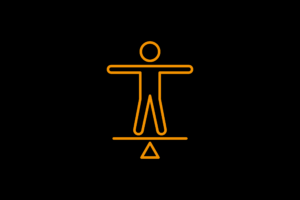What is interoception?
We are all familiar with the five senses: smell, sight, touch, hearing and taste. But did you know we also have another sense called interoception?
Interoception is the sense that gives us feedback from inside our bodies. It can tell us about physical changes in our body or changes in how we are feeling.
Here are some examples. When a person needs a wee, their body usually tells them through an uncomfortable feeling in their bladder. This is a signal for them to go to the loo. When someone has been running fast, their heart might beat really hard and this is a signal for them to stop and have a rest. If someone has a test at school, they might get a funny feeling in their tummy. This is a signal that they are worried and it might help to find ways to relax.
This picture shows some things interoception can tell us:

Picture taken from this website: https://kids.frontiersin.org/articles/10.3389/frym.2021.558246
Interoception is an important sense because it helps us keep our bodies and minds healthy and well.
Interoception and autistic people
Some autistic people experience interoception in different ways to non-autistic people. They may not get clear signals from their body. This can mean that they leave it until the very last minute to go to the toilet. They might forget to eat and drink, meaning that their body is not getting what it needs. They might not realise that they are feeling worried or stressed and therefore do not take steps to relax and calm down.
Some autistic people say that their body signals are very intense, with too much going on at once, which makes it hard to know what these signals mean and what to do about them. Others say that their interoception is better at some times than others. For example, they might become less aware of sensations in their body if they are concentrating hard on a computer game or a piece of homework.
Interception and you
Think about your own interoception. Do you know when your body is getting hot or tired or hungry? Can you tell when you are starting to feel worried or angry?
If this is something you are not always aware of, you can try and pay more attention to signs inside and outside your body. Here are some suggestions:
-
- Try activities that help you pay attention to different parts of our body, like yoga or other kinds of exercise or sport
-
- Experiment with different situations and reflect on your body’s response. For example, hold an ice cube. Can you feel it? What does it feel like? Lift up something heavy. How does this feel in your hands and arms?
-
- Use visual tools to help understand your feelings as they happen, such as using pictures of emotions or a five-point scale to help you understand how intense your feelings are
- Mindfulness exercises or body scans can help you notice your body sensations
There are lots of examples on YouTube, like these:
If you struggle with interoception it is important to use strategies to monitor your own body and wellbeing. For example, a smart watch can help you monitor your heart rate and know when it is getting too high. A water bottle will help you know how much you had to drink that day. Visual prompts or timers can help remind you to go to the toilet.
You can learn more about interoception here: https://kids.frontiersin.org/articles/10.3389/frym.2021.558246
Writing led by kathy leadbitter, Researcher at the University of Manchester



